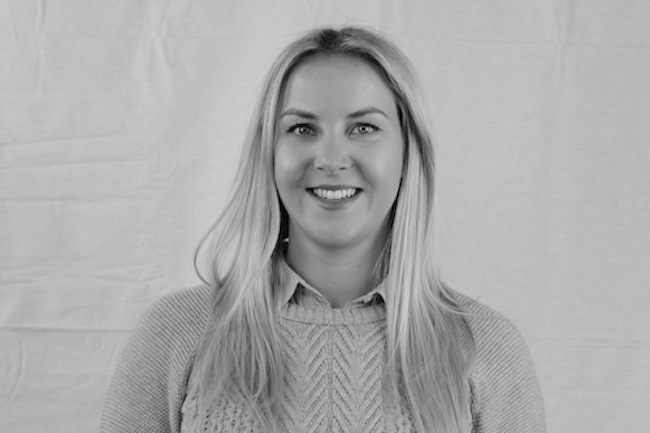Queen’s University Belfast (Queen’s) is a member of the Russell Group of 24 leading UK research-intensive universities, providing world-class education underpinned by world-class research. We spoke to Victoria Campbell, campaigns marketing manager and part of the strategic marketing communications team to learn more about how the university promotes its research to increase its brand awareness. The interview has been edited for length and clarity.

Victoria Campbell of Queen’s University Belfast
What is Queen’s approach to marketing campaigns? What kinds of campaigns do you run?
It’s a real mix. We have some campaigns that are always on, particularly for postgrad recruitment and research communication. A lot of activity from a student recruitment point of view is focused on the student cycle that you go through every year. Though it does differ for domestic and international recruitment. The international student recruitment cycle tends to be much longer, often a couple of years.
One of our main campaigns, which we partially run with Academic Positions, is focused on promoting our research around the world. We obviously do this amazing research at Queen’s, but we don’t shout about it very much. This was something that I was tasked with when I started. We already had communications plans in place but we didn’t amplify it further internationally. I started focusing on trying to develop new channels that would promote our research areas and profile our researchers.
What channels do you focus on when you’re promoting your research?
For the paid campaigns, we tend to focus on social media channels. In the last year, I’ve been focused on trying to find other additional channels to help us communicate to an academic audience. We’re trying to put interesting research out there that sparks something in somebody so they click on an ad and read about the research. That’s the focus for us and we always come back to it. We want to put engaging content out to the right audience at the right time. That’s where Academic Positions came in to play for us. Academic Positions gives us an opportunity to profile some of our amazing academics and promote key pieces of research in a way that ties in with the recruitment strategy for the university.
When you talk about the right audience, do you find that there’s a distinction between activities that you do that would be aimed at student recruitment versus employee recruitment?
Definitely. At the brand level, there’s definitely a difference between student recruitment campaigns and brand awareness pieces for an academic audience, for example. Undergraduates and postgraduates are very different audiences with very different information needs and digital touch points throughout their recruitment and student cycle.
Academic audiences are always going to be trickier to reach because no one is just an academic. They do lots of other things. We need to consider what they’re doing and where they’re spending their time online so we can serve them with research that sparks a genuine interest.
When it comes to the academic audience, do you find that social media channels are a useful way to reach them?
At the end of the day, being an academic is a day job. They’re still spending time online on social media channels at some point. If you’re thinking of people as just an audience segment that you’re trying to reach (and not as actual people) then you’re never going to reach them. A lot of undergrad students, for example, spend a lot of time on TikTok or Instagram, but other audiences spend slightly more on Facebook or LinkedIn. Whether it’s an academic audience or a student recruitment focused audience, I think it’s really important to consider social media channels as part of your wider media mix.
Why do you think it’s important for a university to do marketing activities that focus on building a brand and generating awareness?
Awareness filters down. If you look at Queen’s, we have incredible brand awareness around the island of Ireland. But then even in the UK, the awareness is slightly less, and internationally it’s slightly less again. A real focus for Queen’s in the last four or five years has been international recruitment and to do that we need to obviously increase brand awareness. Potential students need to be aware of Queen’s so they consider applying. Brand awareness is a long-term strategy that will continue to impact recruitment and even research funding. It’s not something that can be done as a short term campaign.
How do you measure the ROI on brand awareness activities? Brand awareness is often hard to justify in a budget because the results are a bit intangible.
Brand awareness pieces are definitely difficult to get buy in for at the start. For me, the key is mapping out your KPIs before you start and including KPIs for different touch points as well. I would start with a KPI for the engagement rate or click through rate from the ads. Then the next KPI is on the website, usually the amount of traffic or the time spent on site. Then you always need to go one step further and have some type of measurable action on the page. For example, when we’re promoting research, we will have a research-focused landing page about that particular piece. The main actions that we really want someone to take from that page are either to click to email the academic directly, click through to their profile to look at more research, or click on a link to other pieces of related research. It’s about having some type of quantifiable data to look at at the end and analyse against what investment you’ve put into it.
Book a consultation
"*" indicates required fields








